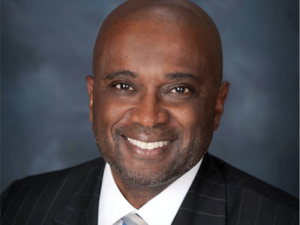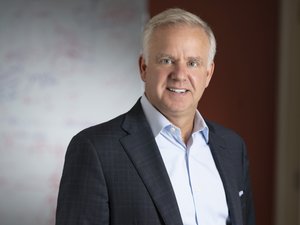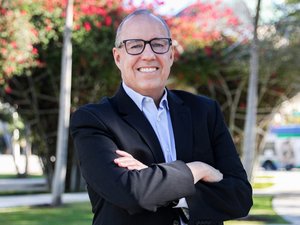After weeks of anticipation and suspicion, 1776 and Philadelphia-based Benjamin's Desk have made it official: They're merging.
On the heels of their latest Challenge Cup event together, 1776 announced that the company would be merging with Benjamin's Desk in a press release Monday morning. According to the release, 1776 co-founder and CEO Evan Burfield will become executive chairman of the combined co-working chain and incubator, which will operate under the 1776 brand. Benjamin's Desk co-founders Anthony and Jennifer Maher will become co-CEOs. The merger will expand Benjamin's Desk and 1776's reach to include Washington, D.C.; Wilmington, Delaware; Philadelphia, Pennsylvania; and New York City.
Once the merger is complete, Burfield will also become the CEO of UNION, an online platform designed to connect entrepreneurs, investors and mentors with one another around the world. The technology will be spun out into its own independent company, which will operate out of 1776's Crystal City offices.
“After challenging entrepreneurs to solve complex problems all over the world, we realized the need for a platform that can connect startups to crucial resources while helping them stay in their hometowns,” Burfield said in the press release. “We expect that making UNION more widely available to other startup programs and coworking spaces throughout the world will help even more young companies create jobs and impact their communities.”
The news comes after several reports in The Washington Business Journal detailing a possible deal to sell of 1776 to the co-working space. 1776's seed fund, which has invested in 34 startups to date, will continue under the combined 1776 company.
Benjamin's Desk and 1776 first connected in 2014 when the former joined Startup Federation. They've since partnered on numerous Challenge Cup events and other initiatives. Benjamin's Desk was also an early adopter of the UNION platform, and Burfield said in a Facebook post that the two groups clearly had a connection.
"There has been a lot of speculation in recent weeks around a potential deal, which coincidentally sped up the preliminary conversations we had started with our long-time partner," Burfield said in the post. "Since we first hosted a Challenge Cup with Benjamin's Desk there has been synergy around mission and complementary skills in our operations."
In some regards, 1776 is no longer the company it once was when it launched in 2013, and a merger seemed inevitable. In 2013, the company launched in D.C. with the idea of being the center point for the D.C. metro area's tech scene. They offered a co-working space and a $12 million seed fund to invest in local startups focused on regulatory hacking. With grant money from the District's government, they opened the D.C. location downtown on 15th St. NW.
Both Revolution and Steve Case invested in 1776 when it launched in 2013. Revolution will continue to play a role in the new, combined company.
"Steve Case and Revolution have backed 1776 since it launched and are enthusiastic about this transaction, which will result in expanding 1776’s reach up the Northeast corridor," a Revolution spokesperson told DC Inno in an email. "We look forward to working with the Benjamin’s Desk team to create more opportunities for more entrepreneurs to launch their start-ups and create jobs in their communities."
Executives and founders have come and gone. In August 2016, Peter Cherukuri was hired from Politico as president and chief innovation officer. In November 2016, co-founder Donna Harris stepped down as co-CEO. In February, K Street Capital's Penny Lee was hired as chief strategy officer. David Zipper, the D.C. government official who helped 1776 acquire its city grant money, came on as a managing director and then stepped down earlier this year.
New locations have popped up. Instead of doubling down on D.C., 1776 started to think globally. Its Brooklyn campus opened in June 2016, and its Dubai location in April 2016. The 1776 Crystal City location and UNION launched after the company acquired Paul Singh's Disruption Corp, which was developing a similar technology and based in Arlington. 1776 used to have a small presence in San Francisco, until it decided to divest earlier this year.
In late 2016, The Washington Business Journal reported that 1776 was struggling to turn a profit. WBJ also reported 1776 had dialed back on bonuses, tying incentives to companywide goals.
Perhaps as an indication to the impending changes, several 1776 employees have stepped down in the past few months, including Zipper and Rachel Haot, the former New York City Chief Digital Officer who joined 1776 to run its Brooklyn campus as managing director.
It's unclear, right now, what this means for some of 1776's current resources for entrepreneurs, such as the numerous themed-incubator programs 1776 has been running with legacy companies, liked MedStar and Accenture, or the Challenge Cup. According to the release, the new combined company will now host more than 1,000 members in its locations combined.
DC Inno has reached out to 1776 for comment and will update the story as more details become available.




